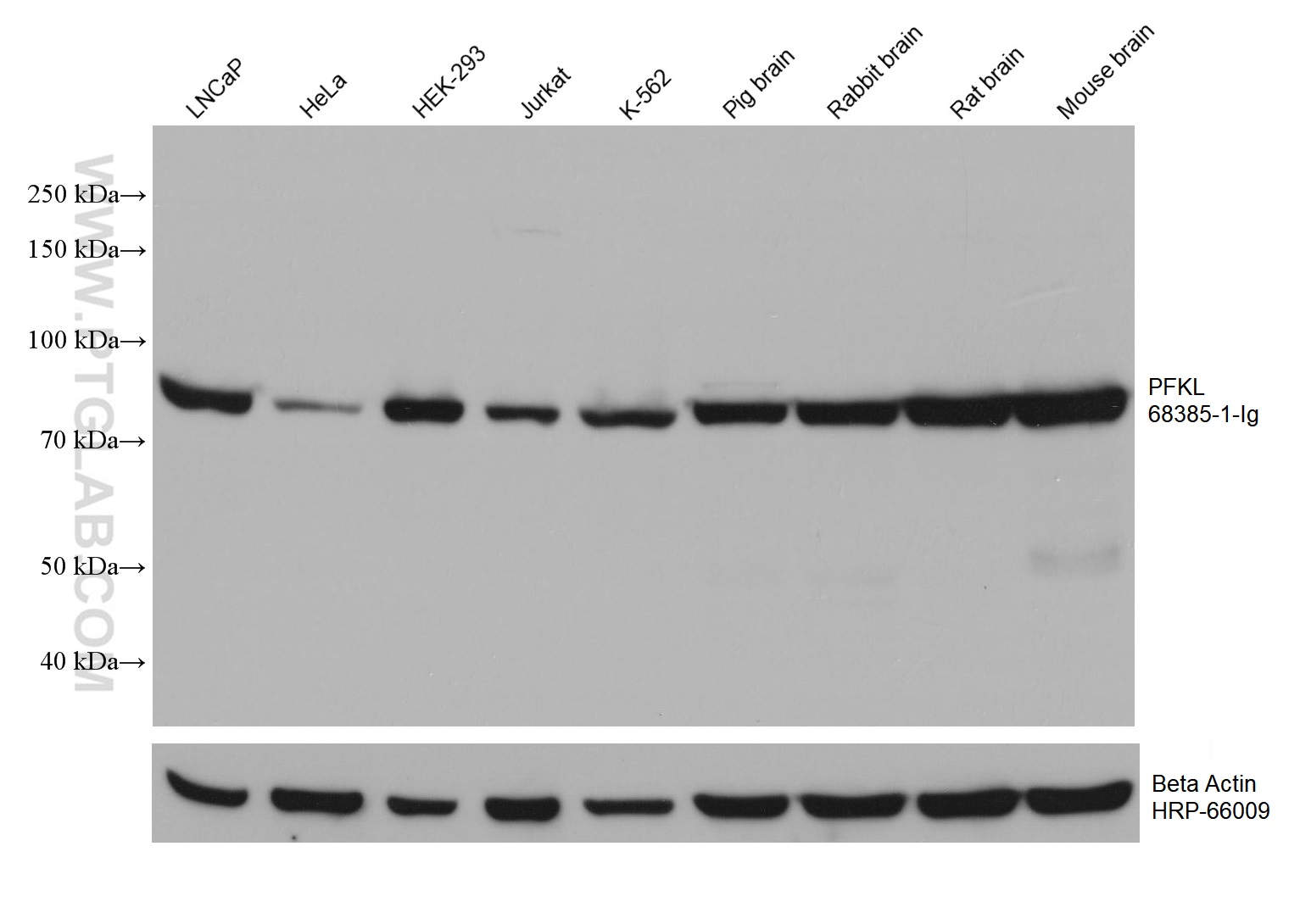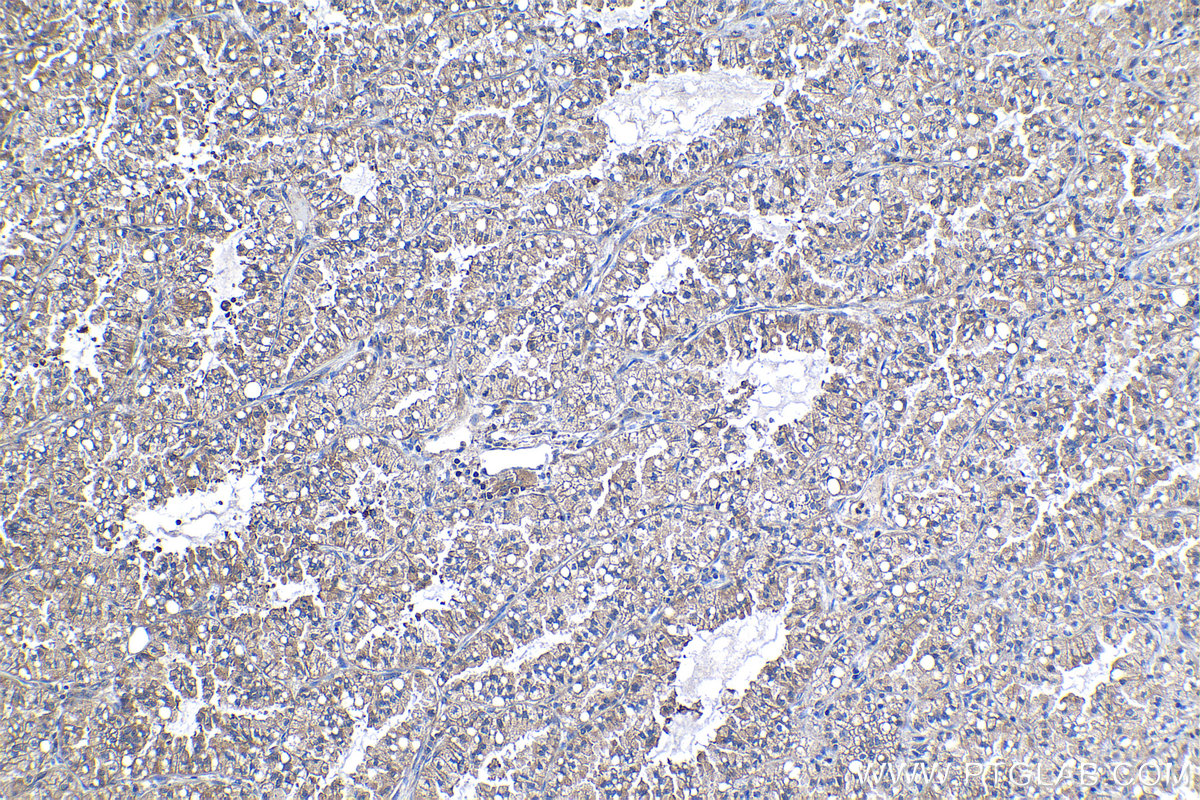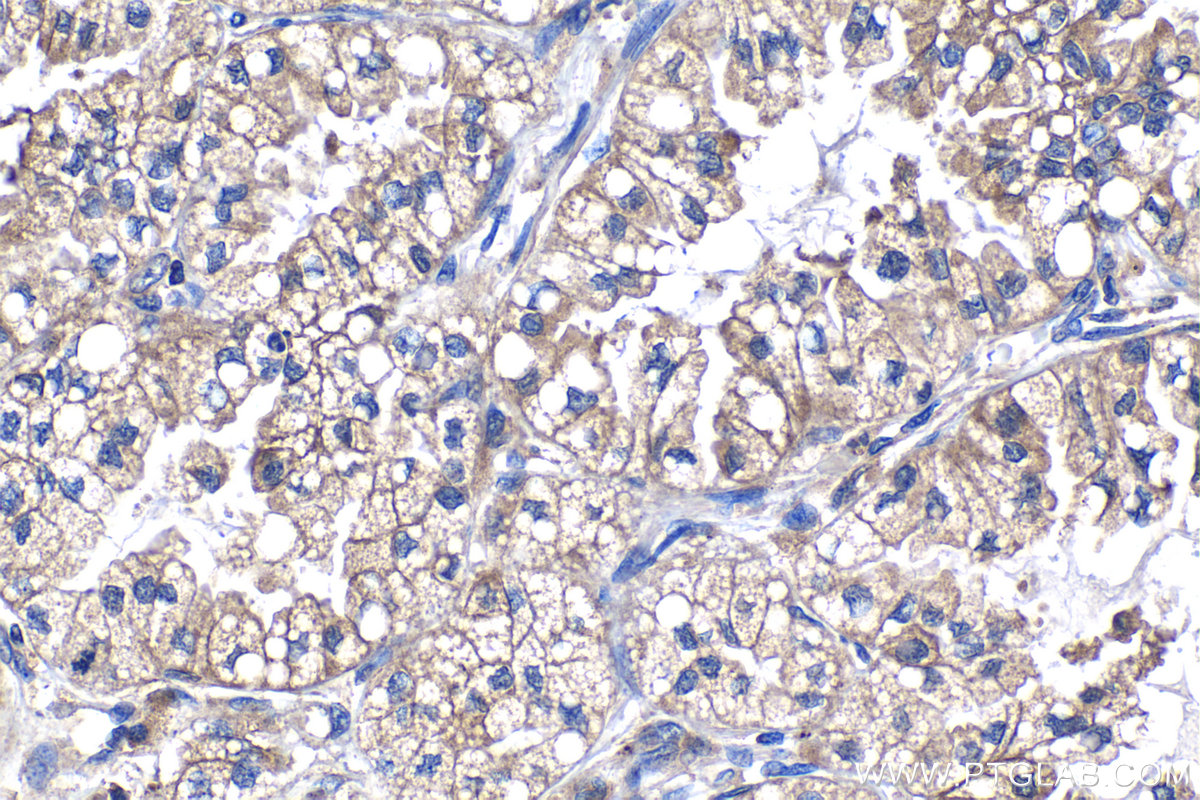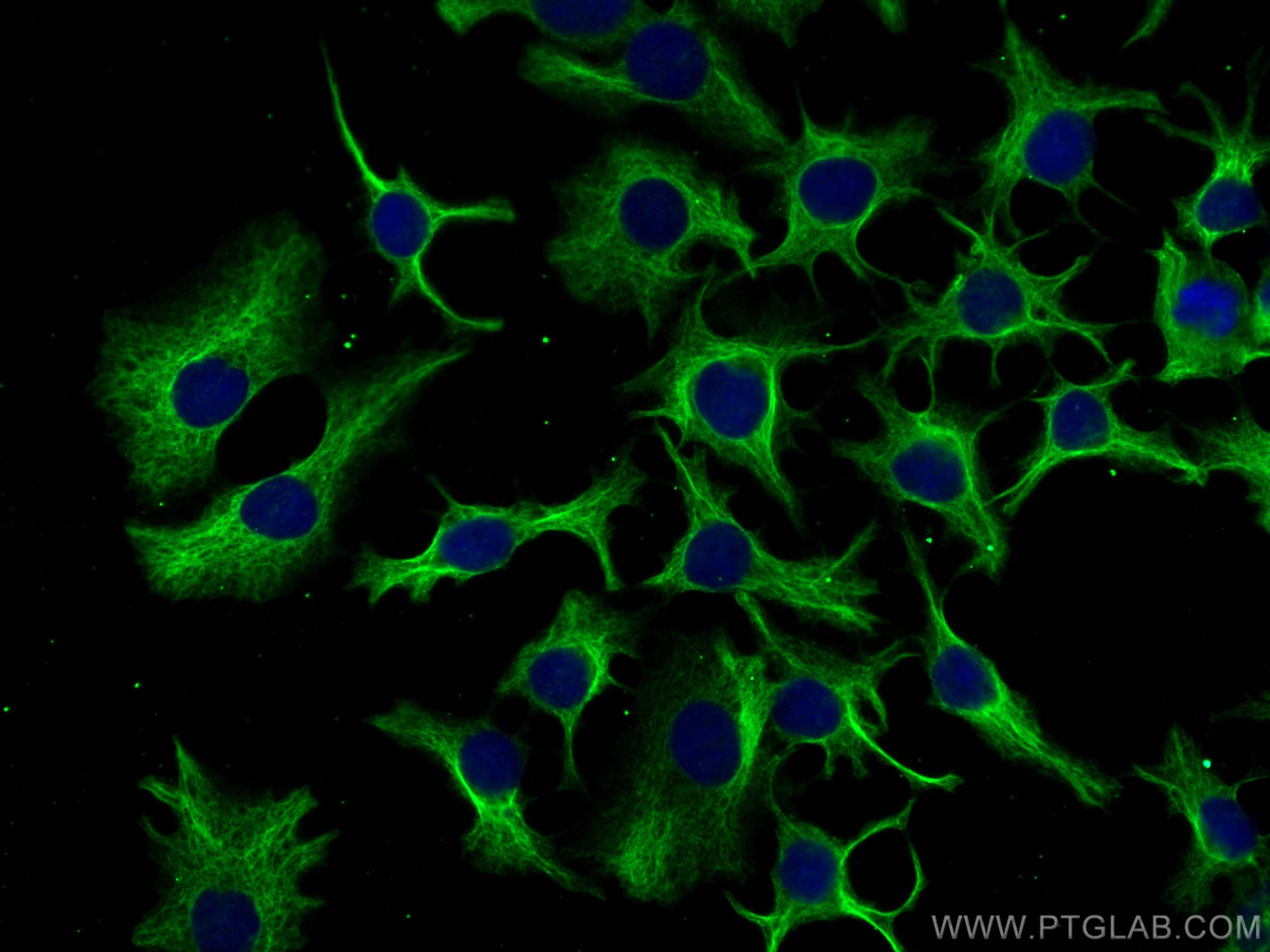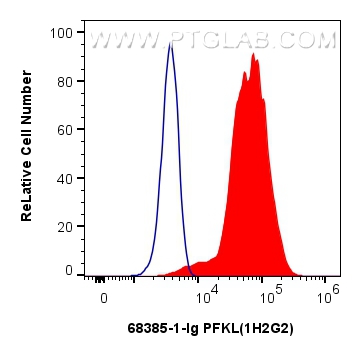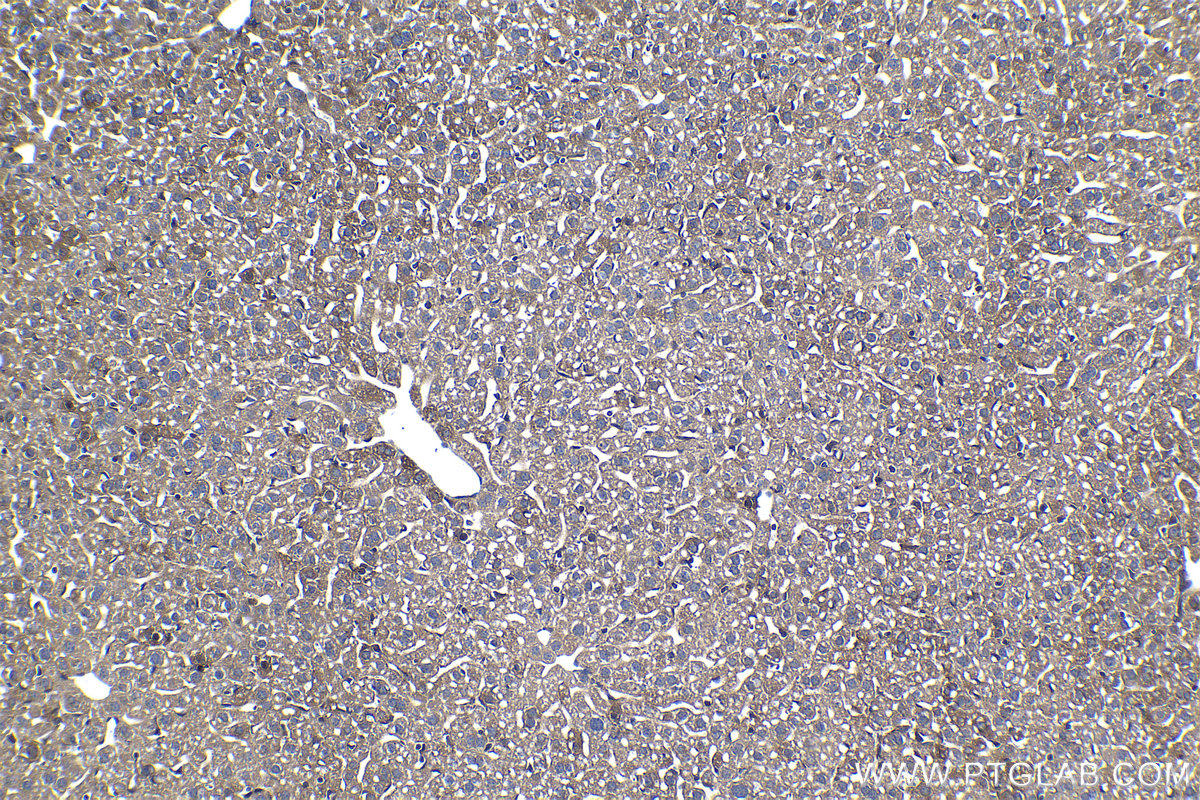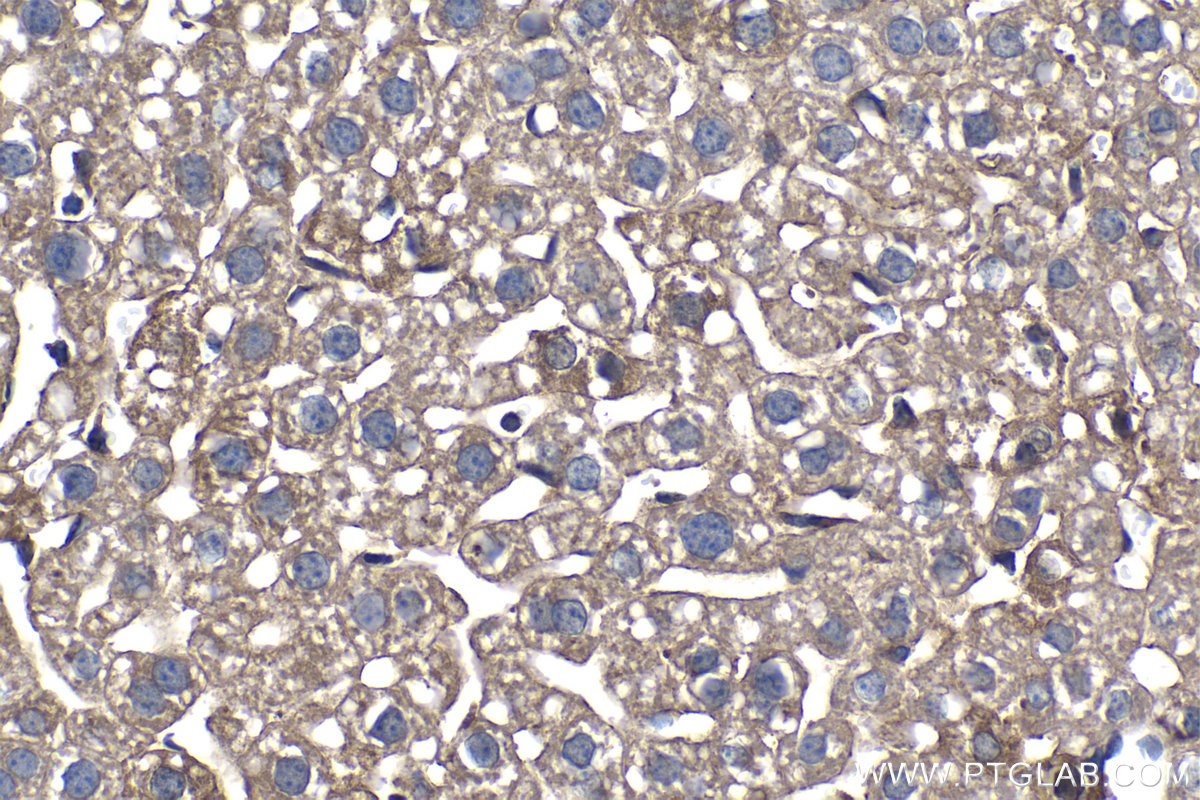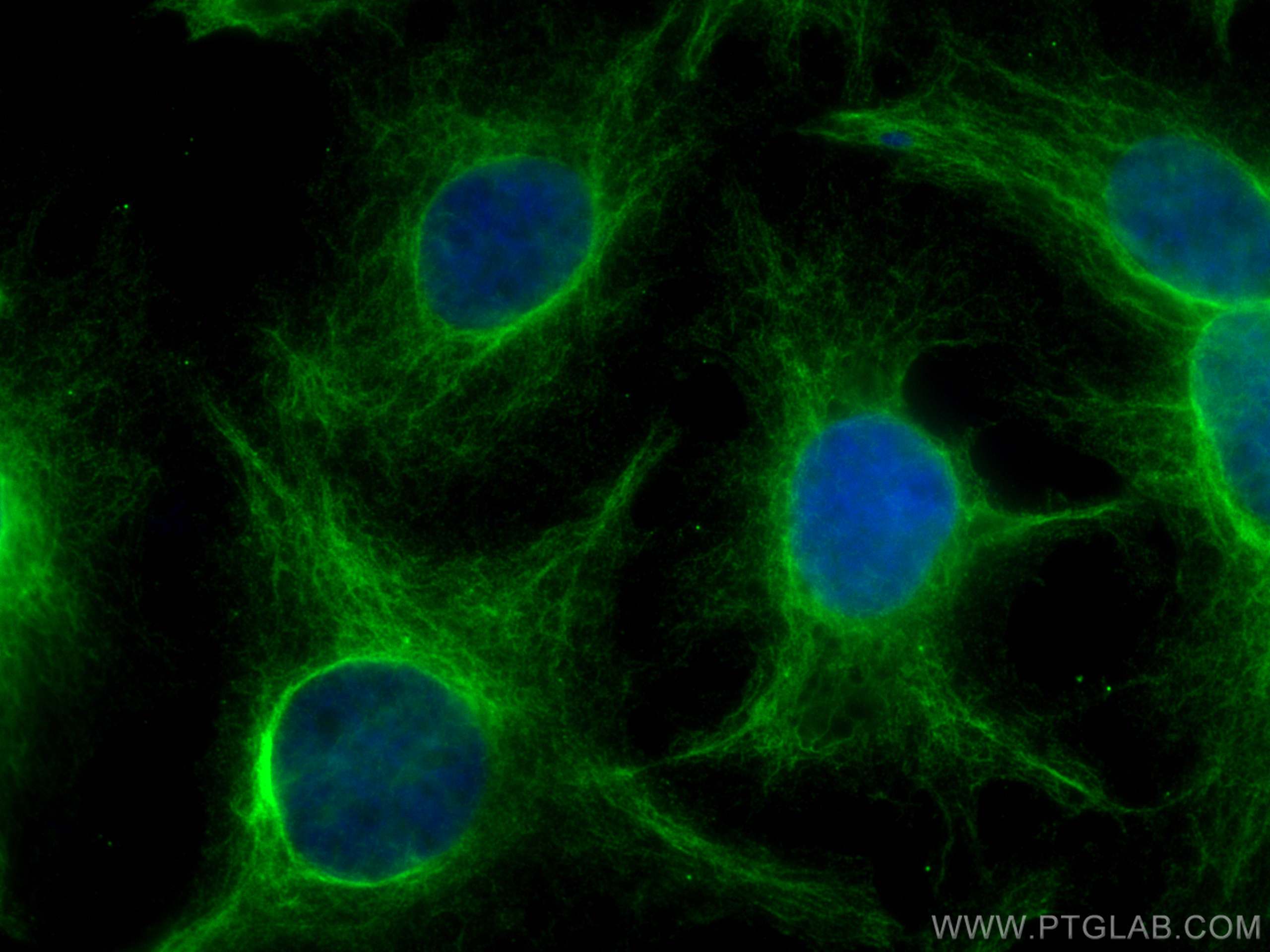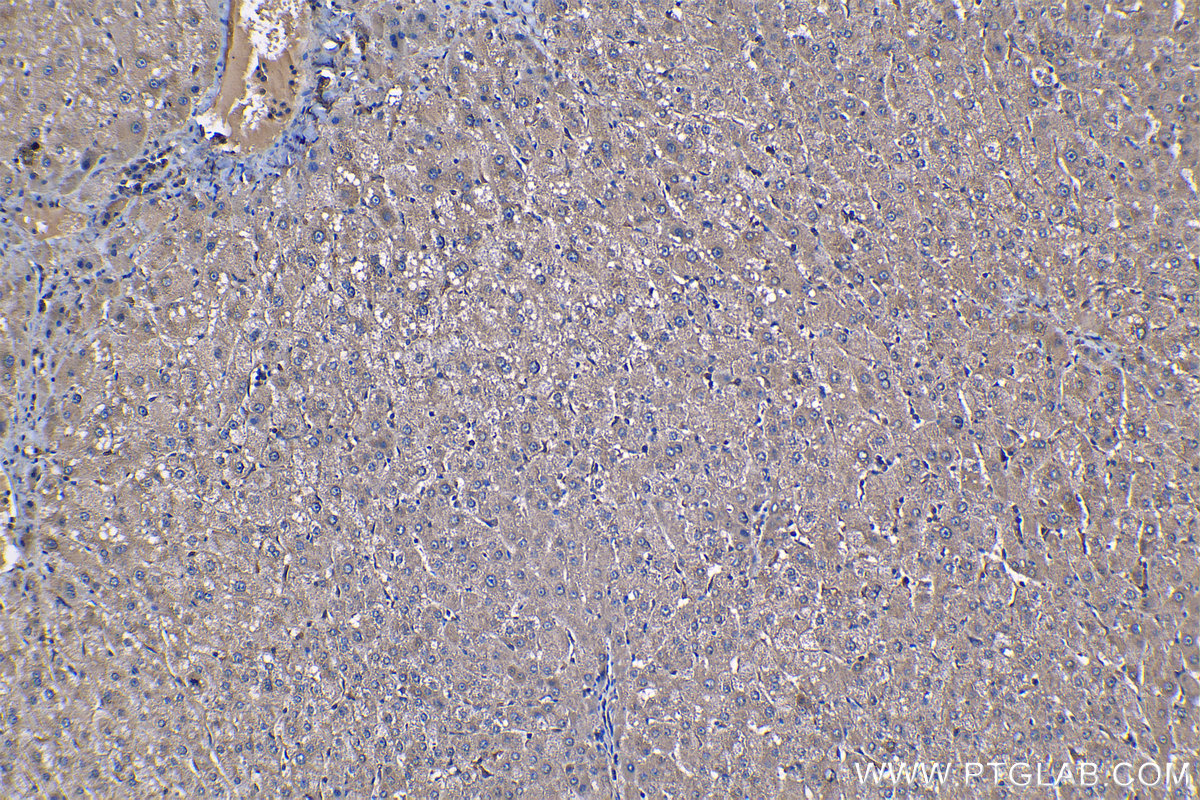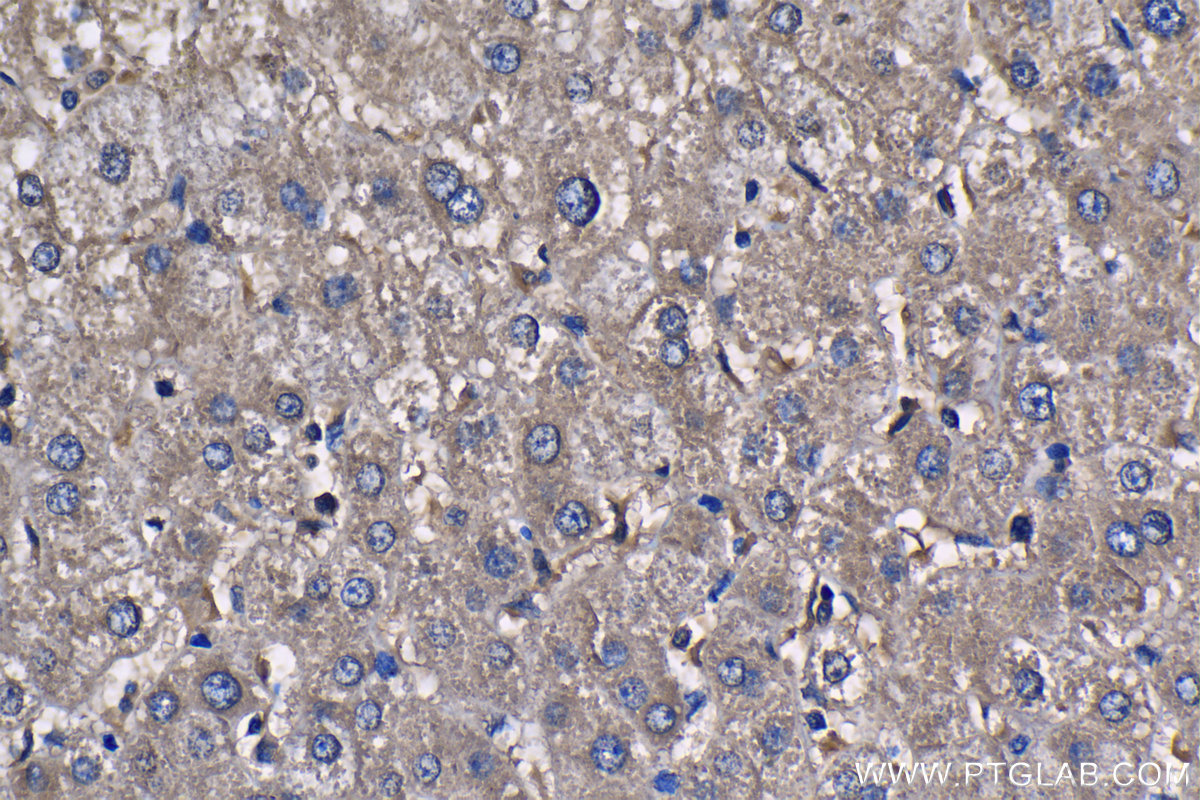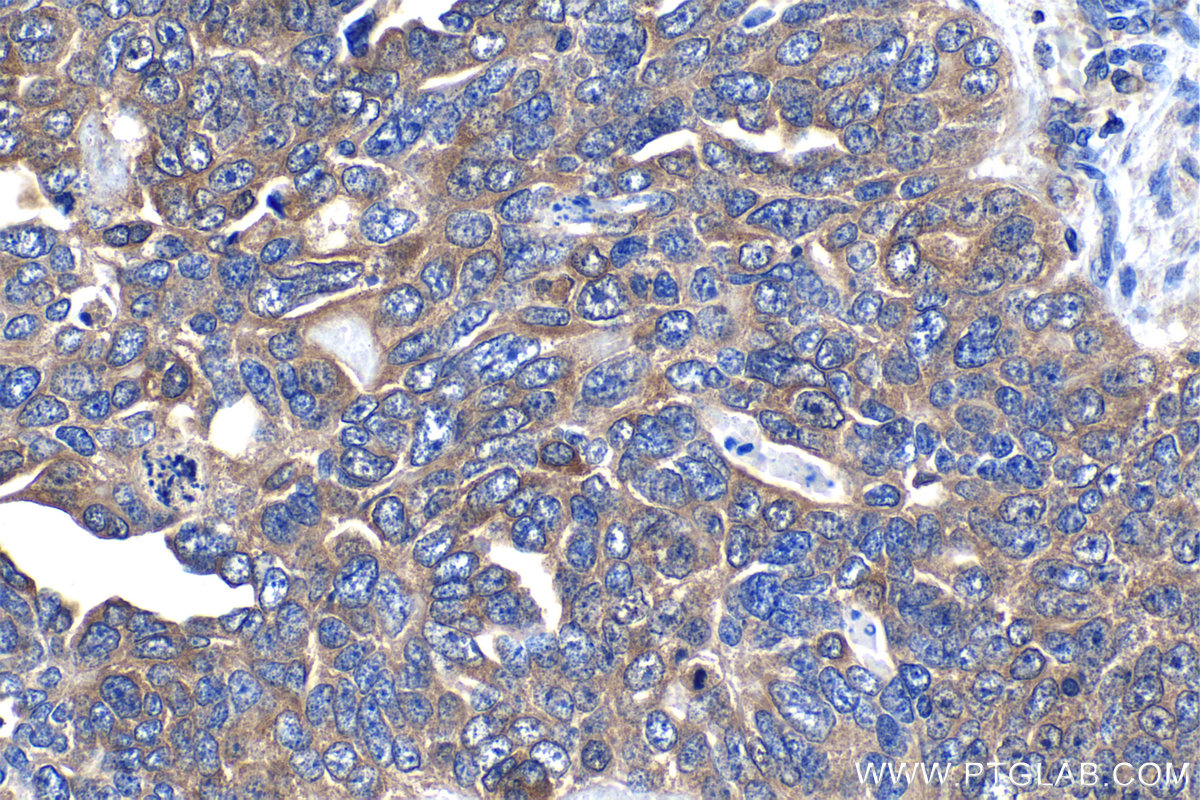验证数据展示
经过测试的应用
| Positive WB detected in | LNCaP cells, HeLa cells, HEK-293 cells, Jurkat cells, K-562 cells, pig brain tissue, rabbit brain tissue, rat brain tissue, mouse brain tissue |
| Positive IHC detected in | human lung cancer tissue, human liver tissue, human ovary tumor tissue, mouse liver tissue Note: suggested antigen retrieval with TE buffer pH 9.0; (*) Alternatively, antigen retrieval may be performed with citrate buffer pH 6.0 |
| Positive IF/ICC detected in | HuH-7 cells |
| Positive FC (Intra) detected in | HEK-293 cells |
推荐稀释比
| 应用 | 推荐稀释比 |
|---|---|
| Western Blot (WB) | WB : 1:5000-1:50000 |
| Immunohistochemistry (IHC) | IHC : 1:1000-1:4000 |
| Immunofluorescence (IF)/ICC | IF/ICC : 1:400-1:1600 |
| Flow Cytometry (FC) (INTRA) | FC (INTRA) : 0.80 ug per 10^6 cells in a 100 µl suspension |
| It is recommended that this reagent should be titrated in each testing system to obtain optimal results. | |
| Sample-dependent, Check data in validation data gallery. | |
发表文章中的应用
| WB | See 3 publications below |
| IHC | See 1 publications below |
产品信息
68385-1-Ig targets PFKL in WB, IHC, IF/ICC, FC (Intra), ELISA applications and shows reactivity with human, mouse, rat, pig, rabbit samples.
| 经测试应用 | WB, IHC, IF/ICC, FC (Intra), ELISA Application Description |
| 文献引用应用 | WB, IHC |
| 经测试反应性 | human, mouse, rat, pig, rabbit |
| 文献引用反应性 | human, mouse |
| 免疫原 |
CatNo: Ag8250 Product name: Recombinant human PFKL protein Source: e coli.-derived, PGEX-4T Tag: GST Domain: 424-780 aa of BC008964 Sequence: TGISHGHTVYVVHDGFEGLAKGQVQEVGWHDVAGWLGRGGSMLGTKRTLPKGQLESIVENIRIYGIHALLVVGGFEAYEGVLQLVEARGRYEELCIVMCVIPATISNNVPGTDFSLGSDTAVNAAMESCDRIKQSASGTKRRVFIVETMGGYCGYLATVTGIAVGADAAYVFEDPFNIHDLKVNVEHMTEKMKTDIQRGLVLRNEKCHDYYTTEFLYNLYSSEGNGVFDCRTNVLGHLQQGGAPTPFDRNYGTKLGVKAMLWLSEKLREVYRKGRVFANAPDSACVIGLKKKAAAFSPVTELKKDTDFEHRMPREQWWLSLRLMLKMLAQYRISMAAYVSGELEHVTRRTLSMDKGF 种属同源性预测 |
| 宿主/亚型 | Mouse / IgG1 |
| 抗体类别 | Monoclonal |
| 产品类型 | Antibody |
| 全称 | phosphofructokinase, liver |
| 别名 | 1H2G2, 6-phosphofructokinase type B, ATP-dependent 6-phosphofructokinase, liver type, ATP-PFK, EC:2.7.1.11 |
| 计算分子量 | 85 kDa |
| 观测分子量 | 85 kDa |
| GenBank蛋白编号 | BC008964 |
| 基因名称 | PFKL |
| Gene ID (NCBI) | 5211 |
| RRID | AB_3085103 |
| 偶联类型 | Unconjugated |
| 形式 | Liquid |
| 纯化方式 | Protein G purification |
| UNIPROT ID | P17858 |
| 储存缓冲液 | PBS with 0.02% sodium azide and 50% glycerol, pH 7.3. |
| 储存条件 | Store at -20°C. Stable for one year after shipment. Aliquoting is unnecessary for -20oC storage. |
背景介绍
PFKL (6-phosphofructokinase, liver type) is also named as PFK-B and belongs to the phosphofructokinase family. The PFKL gene encodes the liver isoform of phosphofructokinase (PFK) (ATP: D-fructose-6-phosphate-1-phosphotransferase). PFK catalyzes the irreversible conversion of fructose-6-phosphate to fructose-1,6-bisphosphate and is a key regulatory enzyme in glycolysis. In human beings, PFK exists as a system of three subunits: these are the muscle(PFKM), liver(PFKL), and platelet(PFKP) PFKs (PMID: 2139864). It has 2 isoforms produced by alternative splicing.
实验方案
| Product Specific Protocols | |
|---|---|
| FC protocol for PFKL antibody 68385-1-Ig | Download protocol |
| IF protocol for PFKL antibody 68385-1-Ig | Download protocol |
| IHC protocol for PFKL antibody 68385-1-Ig | Download protocol |
| WB protocol for PFKL antibody 68385-1-Ig | Download protocol |
| Standard Protocols | |
|---|---|
| Click here to view our Standard Protocols |
发表文章
| Species | Application | Title |
|---|---|---|
BMC Cardiovasc Disord Identification of hub glycolysis-related genes in acute myocardial infarction and their correlation with immune infiltration using bioinformatics analysis | ||
Metabolism Protein kinase N1 deficiency results in upregulation of cerebral energy metabolism and is highly protective in in vivo and in vitro stroke models | ||
Redox Biol Histone lactylation drives liver cancer metastasis by facilitating NSF1-mediated ferroptosis resistance after microwave ablation | ||
Cell Rep GCLM lactylation mediated by ACAT2 promotes ferroptosis resistance in KRASG12D-mutant cancer |

